More than 200 kilometers of open water comprise the Straits of Florida between Cuba and Key West—a long, dangerous crossing for a few adventurous sea kayakers, much less the untold number of asylum-seekers who have made desperate attempts at freedom in homemade rafts. In May 2018, American filmmakers Wyatt Roscoe, Luke Walker and Andy Cochrane sought “the rare chance to experience what so many Cuban refugees had endured before us.”
Their short documentary, The Crossing, captures a grueling 27-hour, non-stop expedition from Cuba to Florida in single sea kayaks. It also sheds light on yet another politically charged segment of the southern border of the United States.
“The entire purpose of the trip was to learn,” says Cochrane, 31. “We could go paddle anywhere, but this crossing has huge historical significance because of the thousands of refugees. Our paddle was just an attempt to learn what we could about what others have done before us.”
Research included visiting the Mel Fisher Maritime Museum in Key West, Florida, whose collection of jury-rigged rafts put Roscoe, Walker and Cochrane’s adventure in stark perspective. The paddlers also hired endurance athlete Magda Boulet to prepare for the crossing; training consisted of lifting weights, paddling, running and adjusting diets and sleep regimes. “It paid off a ton,” notes Cochrane.
The key piece in producing an enlightening documentary was reaching out to Cuban-Americans in Miami and Atlanta. Mirtha Abel, a Miami-based U.S. citizen who arrived from Cuba in 1961, called the filmmakers’ expedition “a little bit crazy.” Meanwhile, Osmel Gonzales described his harrowing escape from Cuba in 1995 atop a minuscule piece of plywood and foam. Gonzales and three others capsized on their second day on the water, before ultimately being rescued 80 kilometers from Key West. In the film, the Atlanta resident speaks of “leaving your world behind and you know you may die.”
After sailing from Florida to Havana (something Cochrane notes has become more difficult for Americans due to recent restrictions imposed by President Trump), the paddlers waited out a tropical storm before launching. Soon into the crossing, they faced four-meter breaking seas. The wind and waves put the paddlers out of contact with their support vessel—and often at risk of separation from each other. “There was a fair amount of puking and managing big waves,” admits Cochrane. “It’s the hardest thing I’ve ever done.”
Like any long-distance challenge, Cochrane says the crossing was primarily mentally taxing. “You just put your head down and try to forget how much everything hurts,” he says. “Our bodies can do amazing things if we can push our minds past a few barriers.”
Like any critical investigation of refugees and immigrants, The Crossing attempted to tackle a big, pressing question: What is the human cost of closed borders? The documentary does not offer a definitive response. However, much is written between the lines.
“I don’t have an empirical answer,” says Cochrane. “But the real answer is anything more than zero is absolutely tragic. Closing borders to people in need of a safe home is inhumane, as far as I’m concerned. We met with refugees and paddled the Straits ourselves, to learn this first hand.”
[ DIGITAL EXTRA: Watch a trailer for The Crossing ]
American filmmakers Andy Cochrane, Luke Walker and Wyatt Roscoe followed in the wake of Cuban refugees across the Straits of Florida in 2018. | Photo: Johnie Gall


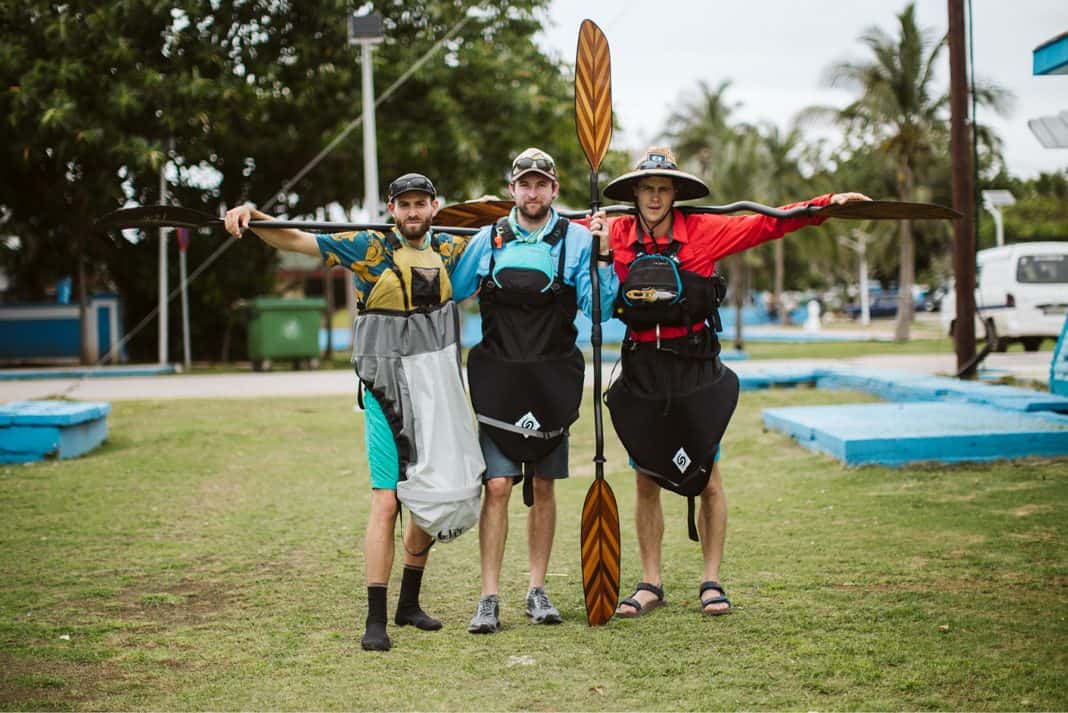

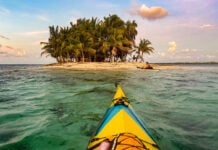
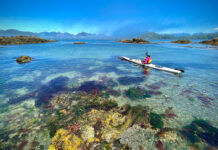
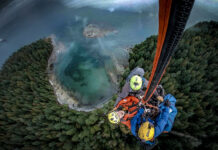
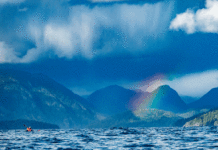

This looks like an interesting and important documentary. Where can I see it?